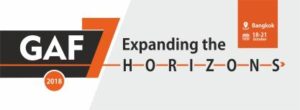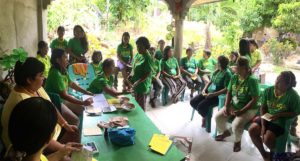 FINANCIAL LITERACY REDUCES RISKS OF WOMEN FROM SMALL ISLANDS IN PHILIPPINES
FINANCIAL LITERACY REDUCES RISKS OF WOMEN FROM SMALL ISLANDS IN PHILIPPINES
18 October | Bangkok: Research in the Philippines shows that savings and credit associations are building the financial literacy of women living in small islands, representing an important socio-economic strategy to build resilience and support the sustainable development of fishing communities.
The savings-credit approach will be the focus of a presentation at ‘Expanding the Horizons’, the 7th Gender in Aquaculture and Fisheries conference in Bangkok on 18-22 October 2018.
The presentation—‘Promoting financial literacy among women in island fishing communities through CoMSCA: The case of Gigantes Islands, Carles, Illoilo, Philippines’—will be led by Darlene Joy D. Calsado, University Research Associate II, Center for West Visayan Studies – University of the Philippines Visayas (UP Visayas). Co-authors include Prof. Josephine T. Firmase, Prof. Jorge S. Ebay and Ms. Lovella Mae Magluyan.

CoMSCA group meeting. Photo: Darlene Joy D. Calsado.
The ongoing research, which began in May 2017, looked into the role of Community-Managed Savings and Credit Associations (CoMSCA) in Gigantes Islands. These were set up by various NGOs and UP Visayas as part of the recovery and rehabilitation efforts for Typhoon Haiyan in 2013.
“The associations were established to ensure that women, as economic productivity partners, have full and effective access and participation to opportunities such as financial literacy to contribute to small island resilience and sustainable development. And our research showed that the associations did exactly that.”
“First, it increased women’s knowledge of financial concepts, skills and attitudes such as the importance of savings. Women now had a source of savings in case of an emergency and in preparation for the monsoon seasons. They also learned the principle of risk and return, because they stopped using other micro-finance institutions that charged higher interests with no return benefits.
“Second, women’s basic knowledge of financial literacy translated into appropriate behaviors such as money or household income management. Women members now had a budget plan wherein savings for CoMSCA were already allocated. Their consumption and spending behavior also changed wherein they were able to prioritize their needs over their wants.
“Lastly, CoMSCA produced positive outcomes on the economic, social, and attitudinal/motivational aspects of the members and towards the achievement of their personal and family dreams.
“These research findings can contribute to the crafting of policies that aim to alleviate poverty and the everyday risks of women, especially in fishing and small island communities. Their livelihood, which is fishing, is seasonal due to frequent typhoons and monsoon seasons. Thus, the need for complementary support on savings and credit institution is crucial,” she said.
The presentation takes place on Saturday 20 October at during the 11:00-12:30 session at the Asian Institute of Technology Conference Center in hall 3. All media are welcome to attend.
Media contact: Kate Bevitt, katebevitt+oak@gmail.com
